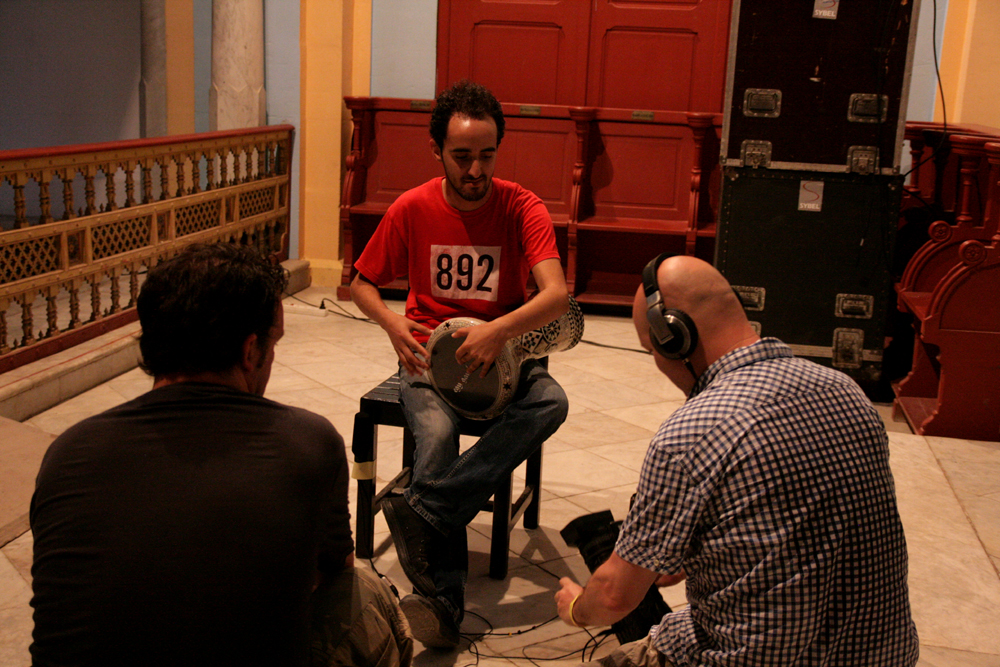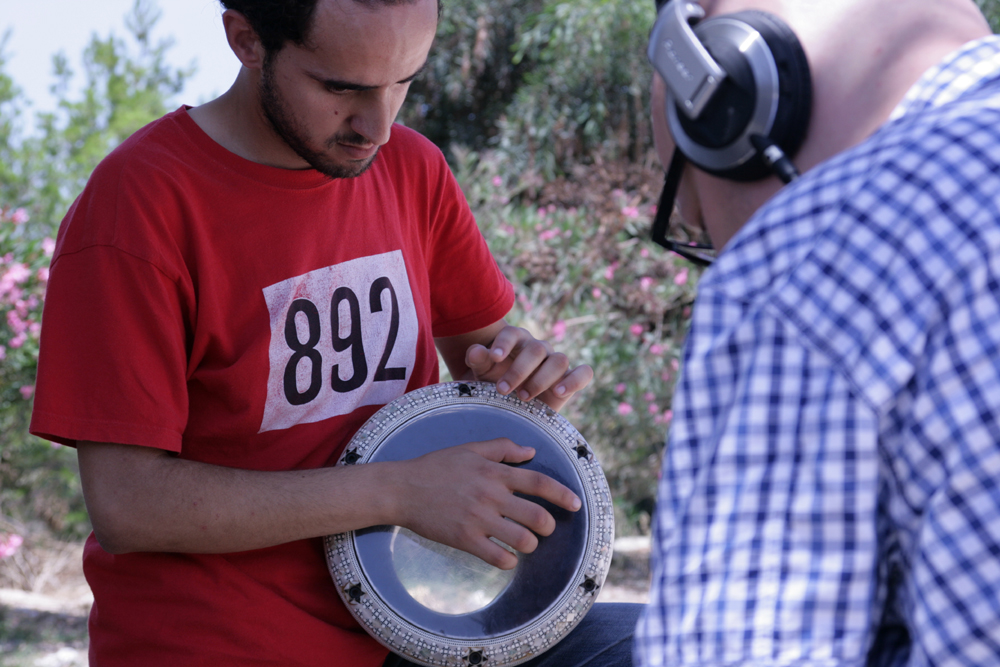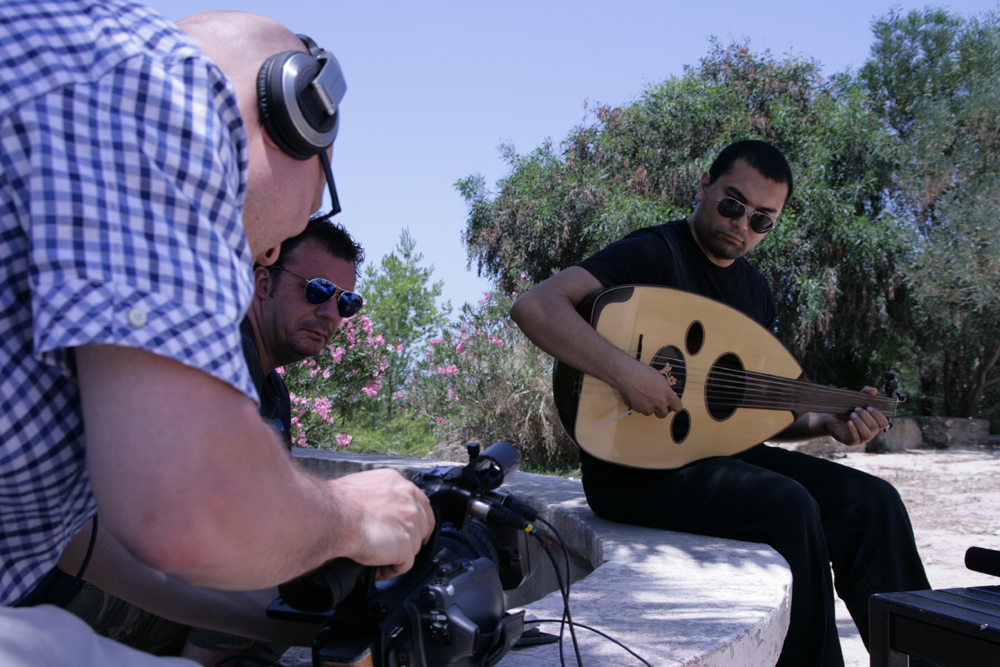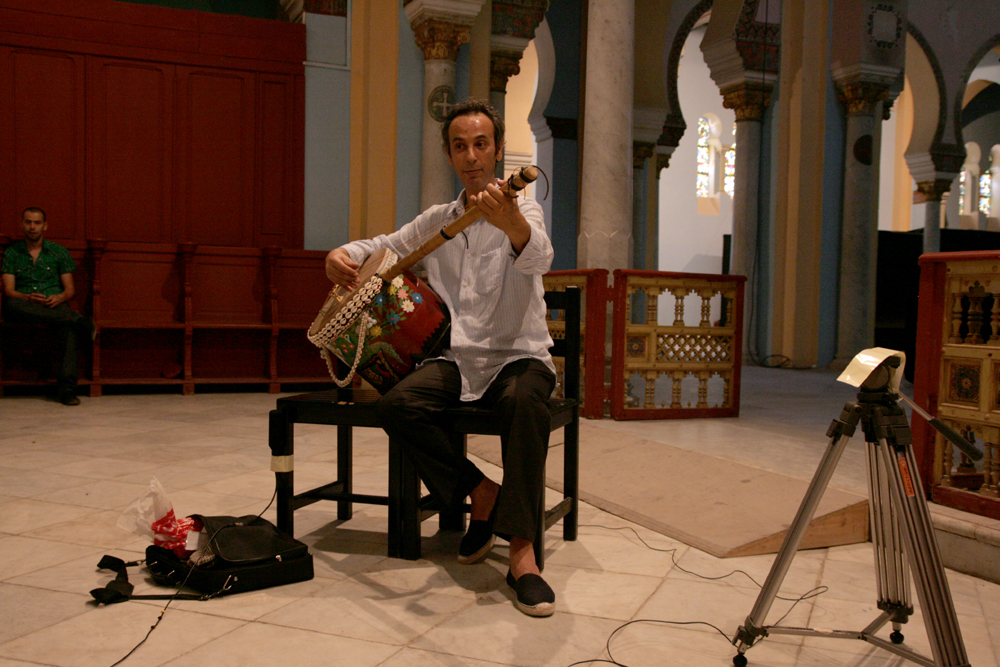In June 2011 we travelled to newly post-revolution Tunisia – where the Arab Spring had first started. We were playing at electronic culture festival E-FEST, being held at the Acropolium de Carthage – the incredible gothic cathedral in the ancient part of the capital city Tunis. The festival arranged for us to do some recordings with local musicians, right outside the Acropolium.
We did three fantastic sessions, first was the amazing Seifeddine Helal – a student of the well known L’Institut des Hautes Etudes Commerciales (IHEC) and part of the University of Carthage. A multi-instrumentalist and already one of Tunisia’s top up-and-coming percussionists, he specialises in Darbouka, the goblet drum used mostly across North Africa and the Middle East.
2017 UPDATE NOTE: Not long after recording this session, Seifeddine moved to Paris, France – where on a number of occasions he performed with us on Orchestra of Samples – including at the prestigious Quai Branly Museum. In 2014 he moved to Boston, Massachusetts to study at Berklee College of Music and has since worked on music scores for documentaries and drama, including the Oscar nominated Timbuktu.
Second to be recorded was ethnomusicologist Hamdi Makhlouf playing Oud – the pear-shaped fretless stringed instrument, similar to a Lute – again mostly used in North African and Middle Eastern music. He teaches at Tunis University, formally the Institute of Higher Studies of Tunis and has been collaborating with experimental Amercian electronic artist Kevin Blechdom and performing with Hungarian singer Váczi Eszter.
Third and last to be recorded was music teacher Zouhheir Gouja, from the Tunisian band Yinna, playing Gombri – a North African stringed instrument that’s often been said to be the original bass instrument, it’s ‘bassy’ sound comes from having it’s strings played over a large hollow wood ‘drum’.
Massive thanks to Afif Riahi and E-FEST.





